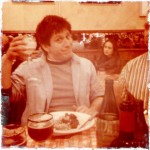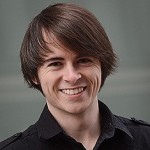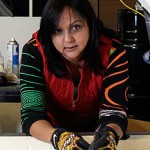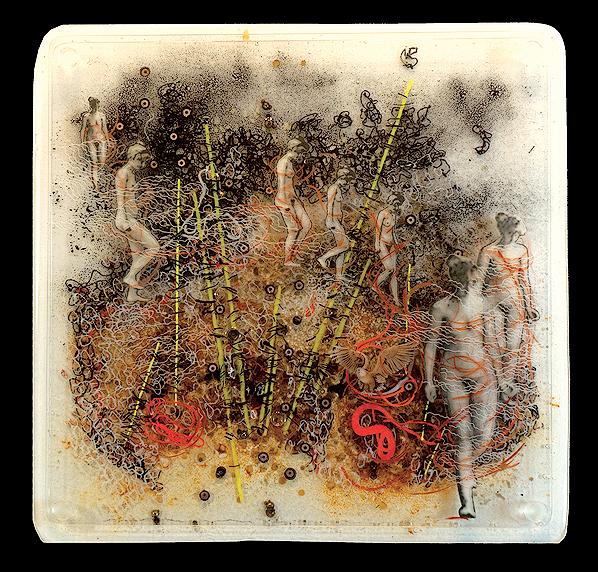Featured Poet: November 2011 Vol. 4 # 1
classid="clsid:38481807-CA0E-42D2-BF39-B33AF135CC4D" id=ieooui>
Chris Mink was born and raised in Tuscaloosa, AL. He presently sweats buckets in Tallahassee while pursuing an MFA in Poetry at Florida State University. His work has appeared or is forthcoming in The Greensboro Review, The Chattahoochee Review, Anti-, The Offending Adam, and la fovea. Earlier work can be seen in a folder his mother keeps.
The Mauling of a Poet
Once I pass 13th Street and MLK, I better know somebody
or know my way out.
You’d never go there. You’re like me,
in a smoke-filled wine bar reading poems.
I take notes, wanting only to be nothing like you,
my tongue over the edges of my teeth,
how I sharpen them just now, unnoticed, the way blades
drag across rock without much effort
from the hand that holds them. Know this: on Sunday
there were Blue Nose pit bulls in the yard, and everything
on that red clay earth
was a chew toy: Tonka trucks, teddy bears, pig bone and glass, blood
dried black in the dog food. They paced the same paw path
until the trench was so deep a person could get buried.
Hookmaster and Pete brought me to the barbeque.
A red bone girl licked rib sauce from the corners of her lips.
One-sixteenth Choctaw. The rest: butterscotch dipped in cinnamon.
Pits tied to quarter-inch chains strained against their handlers, pulled back
onto their hind legs. Ears up, the dogs stared each other down,
their barrel chests swollen. I think as they did: tear of tendon, ripped
muscle, snout, neck, and every little moment of life that rises and falls
in the final pulse.
Tonight I sip my beer, pull my cigarette until my insides fill with fire.
You’re on to children now, or hotel employees, whichever one you blame
for betrayal. That horrible scarf you got for your birthday.
Oh, yes, one more story about your birthday, one more plug
for your published works, your travel, your love of cuisine,
especially from brown people. Any shade will do. I shift my chair
and remember Hookmaster’s reply when I mentioned how tough I felt
being on the wrong side of the tracks. His arms like battleship cannons,
hands that could jerk a rhino by the horn through a gopher hole.
I’ll stay in this chair
until you finish your villanelle about the trials of a writer,
or I could tell you
the weight of a pit bull’s final breath in my arms.
You better hope my chain holds.
Mr. International
On Thursday my fantasies are tall women
with lipstick like blood from a bullet wound
and toenails to match. August
isn’t even a full day old. Just through those branches,
a sky
with the orb weaver in the foreground,
and a notion that I could be
an architect:
stacking rebar, spit, and steel until
curious clouds become territorial.
Every time I see really nice luggage
in an airport I think about the swimming pool
at my apartment complex, the taller women there
burning like solar flares covered in oil.
I bet they like men that stack things.
I bet they go their entire lives staring at buildings
at the blue that backs their angles,
and it never occurs to them to see how fast
an object might fall, or how the body trembles
just before you let it go.
~these two poems originally appeared in the Chattahoochee Review





